Among the many stage actors who have appeared on the big and small screen, New York-based Dan Domenech, Erik Ransom, Jamyl Dobson, and Johnny Smith are accomplished and well-versed in both. Though all four were trained and maintain flourishing careers in the theater, they’ve also done a variety of notable projects for film, television, and internet streaming, And through their experiences in the different media, they’ve had access to the behind-the-scenes inner workings of each and have gained valuable insights into their individual processes, with which most theater-goers and viewers are largely unfamiliar.
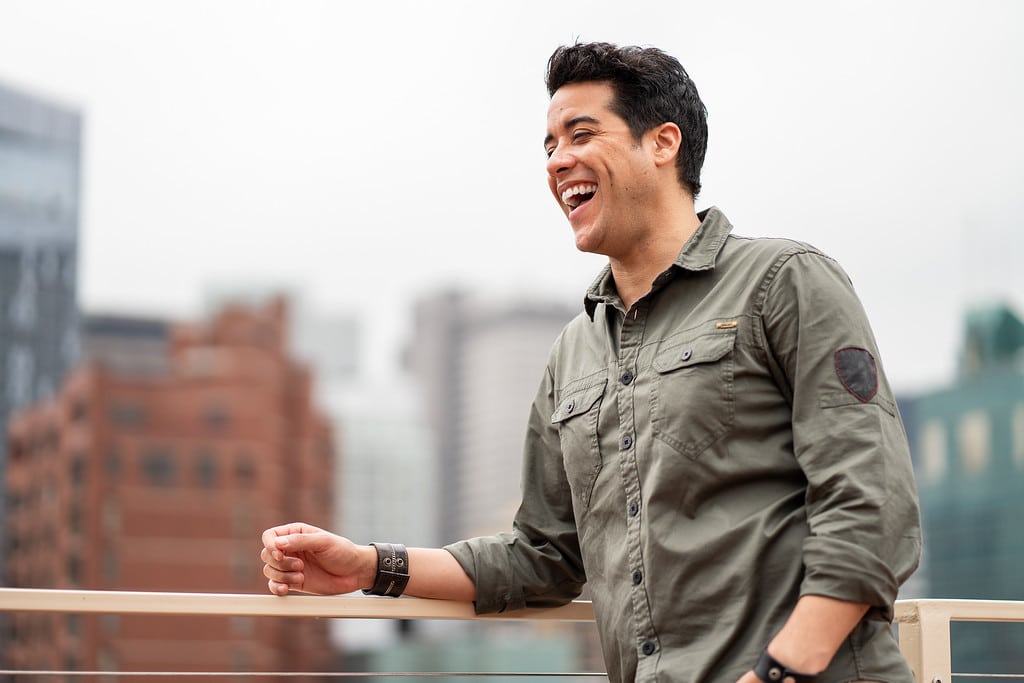
Dan Domenech is an actor and singer, whose most memorable roles include Jason Dean in Heathers: The Musical, Drew in the Broadway musical Rock of Ages, Che in Evita, and a recurring guest appearance on the TV series Glee. He has also appeared in the pre-Broadway runs of Wonderland and Sister Act, national and international tours of Rent, and, currently, in the Off-Broadway revival of Smokey Joe’s Cafe. Along with his acting, he has worked as Associate Choreographer for film and TV projects like Tropic Thunder, Step Brothers, Fame, The Academy Awards, and The Emmys, and made his directorial debut in the summer of 2017, on the beta test for the revamped Heathers: The Musical before its sold out run in London. His autobiographical cabaret concert Bootleg Famous premiered last summer at the Pennsylvania Shakespeare Festival and will play New York City in January 2019.
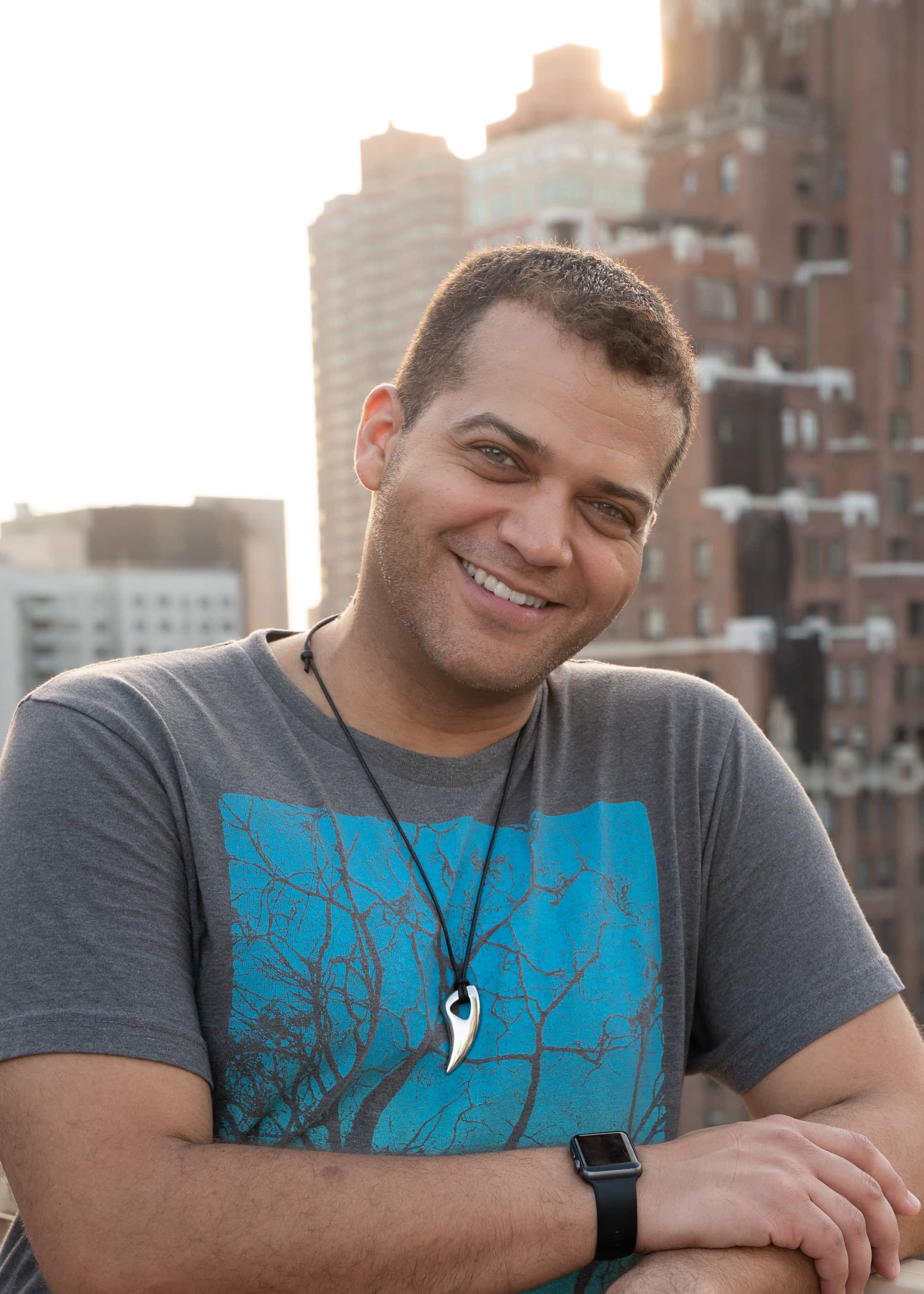
Erik Ransom has taken the stage in many musical and dramatic productions in both New York and Philadelphia, and appears as François on Seasons 1 and 2 of the 2017 Daytime Emmy-nominated Amazon Prime series Tainted Dreams and alongside Taryn Manning (of Orange is the New Black) in the feature film Happy Yummy Chicken (for which he also contributed songs). In addition to performing, he is an internationally-produced playwright, composer, and librettist, whose original works include More Than All the World (inspired by Christopher Marlowe’s Edward II and produced at New York’s Theater for the New City) and GRINDR The Opera (which has played in cities throughout the US and in a critically-acclaimed sold-out run in London), as well as the lyrics for the Off-Broadway musical The Anthem (The Lynn Redgrave Theatre).
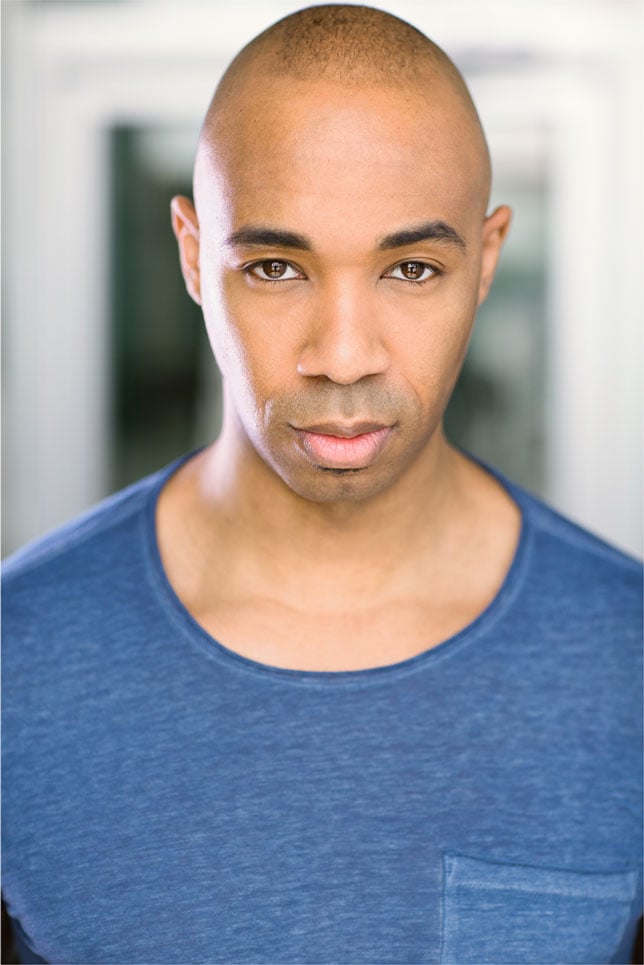
Known for his work on the TV series Gotham, The Path, and Cain, Jamyl Dobson will soon be seen in the NBC hit Manifest. He also has an extensive theater background, having performed Off Broadway, regionally, and internationally. Some of the many companies Dobson has worked with include New York Theatre Workshop, Lincoln Center, La Jolla Playhouse, and Classical Theatre of Harlem (where he was recognized by Independent Weekly for Best Supporting Performance in Ain’t Supposed to Die a Natural Death).
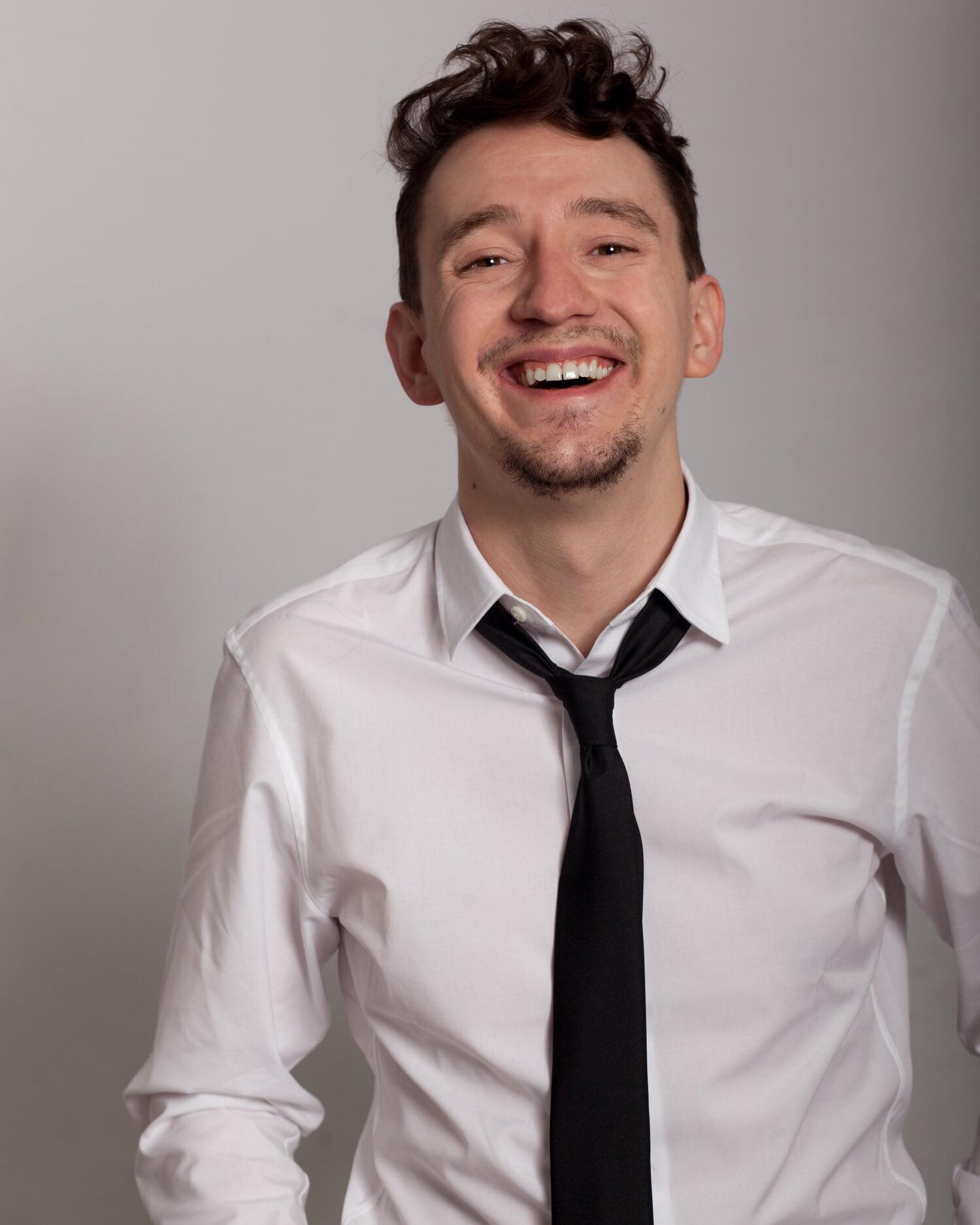
For many years, Johnny Smith performed classical theater and sketch comedy in Philadelphia, where he was featured in the Barrymore Award-winning ensemble of The Radicalisation of Bradley Manning. Recently, he was recognized as Best Actor in a Comedy by the Actors Awards in Los Angeles for his lead role in the independent feature film Shithead. He now resides in Brooklyn, and, as John-E-Raps, has released his first hip-hop single “Mouse Trap U.S.A.”
I had the opportunity to talk to the four versatile actors about their live theatrical work and their filmed and taped performances, to find out their views and approaches to each.
What are the main similarities and differences in the artistic processes of live theater versus screen?
Dan: When you do musical theater, you have the whole script, so you see where your character is going. You have four to five weeks to rehearse, and to talk to your director and cast mates. You have time to develop your work; you can make new discoveries and keep making changes right up through the previews. With TV, it’s being written as you go, so you don’t know how it will develop or where your character is going. Especially if you’re a guest on a regular series, you’re expected to know your character with lines ready to go when you arrive, you have to make strong deliberate choices about your character without bouncing it off creatives, and show up and get the job done. On the set, there’s no getting to know people; you show up, you do your scenes, you sign out, and they say they’ll call you if they need you. It’s not all glamorous – it’s stressful. Time is money, so it’s all done quickly and you have to be ready.
I’ve also seen the inside of a writing room. TV writers sometimes have bad ideas and everyone is okay with that. They admit them freely and change them, without ego getting in the way. The vibe in the room tells you if you’re on to something; if something doesn’t work, they move forward and work as a team. It’s different with a theater. If the script doesn’t work, the actors at times are afraid to call out the writer and get into a disagreement. There’s a tactful way to get your ideas across, but people can be fearful of insulting a writer and losing their job. But you need to say it, to avoid a flop; you need checks and balances in the theater. Don’t be afraid to present ideas.
Erik: I’ve also observed that one of the main differences, which is both fantastic and scary, is that for the screen you have to come in with your character decided. In Tainted Dreams, for example, I made a bold choice on my own to use an accent for my recurring role. I went in with the idea, and the production team was fine with it, and since the scenes aren’t shot in order – in general, all of the scenes that take place in a particular location are often shot on the same day, out of sequence – we had to stick with that decision. In the theater, you can make changes during the rehearsals and previews. Also, with screen work there’s a lot of hurry up and wait – you’re in make-up for an hour, they’re setting up the lights for an hour – so if you know you’ll be shooting a short scene that day, you have time to go over it, you don’t need to have all of your lines from the entire script in your mind at that time. Plus they do the takes for the scenes repeatedly, from different angles and positions, so there are tricks in editing. If anyone blows a line, but the general performance is good, they can edit in the audio; as a result, there’s not the same pressure as in live theater, where everyone has to get it right the first time, every time.
Jamyl: The main similarity is that you have to tell the truth in both. What does your character want at that moment? In TV, especially for supporting roles, you have to go in and be much more specific because you’re just there for a few lines in your scenes, so you have to hit your mark. It’s even harder than with a play, where you have the time to develop the characters and their journeys. Another difference in TV is that you must make sure you’re not over-projecting; you have to practice more stillness, because the camera picks up so much, whereas in the theater you have to project, to reach the entire house and to involve the audience in your character’s story and emotions.
Johnny: You lose and gain a certain amount of control in both. On stage, you don’t get to go back and do it again; they don’t call “cut” like they do in film, where you might get another take if there’s time. For screen work there’s the comfort of knowing you can do a retake, not have to wait until the next night’s performance on stage. But I feel that a stage actor gets more say in the development of the character through the rehearsal process, and that track becomes yours. In film, the editor is the author of your performance, and the final cut can be surprising! The chronology can be different in some scenes, and sometimes they use the audio recording of your lines, not the audio from the actual take. And for those reasons, films can take a long time. There’s the original shoot, then reshoots, then the production is held, then more reshoots, and then the audio recordings are done, and all of that can go on for several times, over several years.
How do you adjust your preparation and performance for each medium?
Dan: There’s a lot more cramming in the TV world. You only get your lines a day or two before you shoot, so it’s a cramming session – especially if you’re a stage actor who is used to getting four to five weeks of rehearsal time. The emotions are the same for both internally, but you have to hold it back physically for the screen because the camera is so close and you’re so magnified. With theater, you have to be big to command the stage and to reach everyone in the audience.
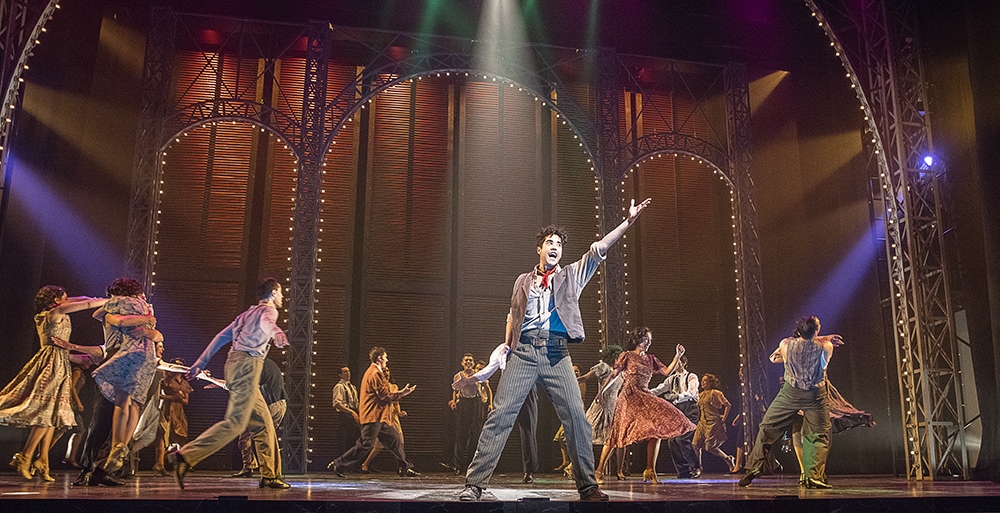
Erik: In the theater, there’s a whole long rehearsal process. On camera, there’s a lot of the production team around you, including a script supervisor on set to ensure the integrity of the dialogue and narrative, so you rely on them to fit your performance in with the style and tone of the rest of the cast and story. I’ve been lucky to work with some great teams, and I’ve also been very fortunate to have had a lot of opportunities for improv; it’s nice to have those liberties.
Jamyl: TV is definitely the hurry-up-and-wait industry! You’re called hours ahead for hair and make-up, so while you’re sitting there, you go over your lines, take that moment to breathe, and get that laser focus. When I did Gotham, they only did two takes of my close-up, so I thought to myself, “I hope I did it right!” In theater, you have the luxury of rehearsal, so it’s more like peeling back the layers of an onion.
Johnny: The rehearsal time is so short for film! You have an idea of what you’re going to do beforehand, but you don’t have any more time to figure it out; that lack of rehearsal time caught me off guard. And with a film, so many scenes are changed, cut, added – it’s more fluid, or molded, like putty. For Shithead I got to improvise, but I had no idea what would be used. A play is more solid, especially for a classic like Shakespeare. There can be some cuts to the text, but the script for a published play stays pretty much the same, so you have a better idea of what the finished product will be.
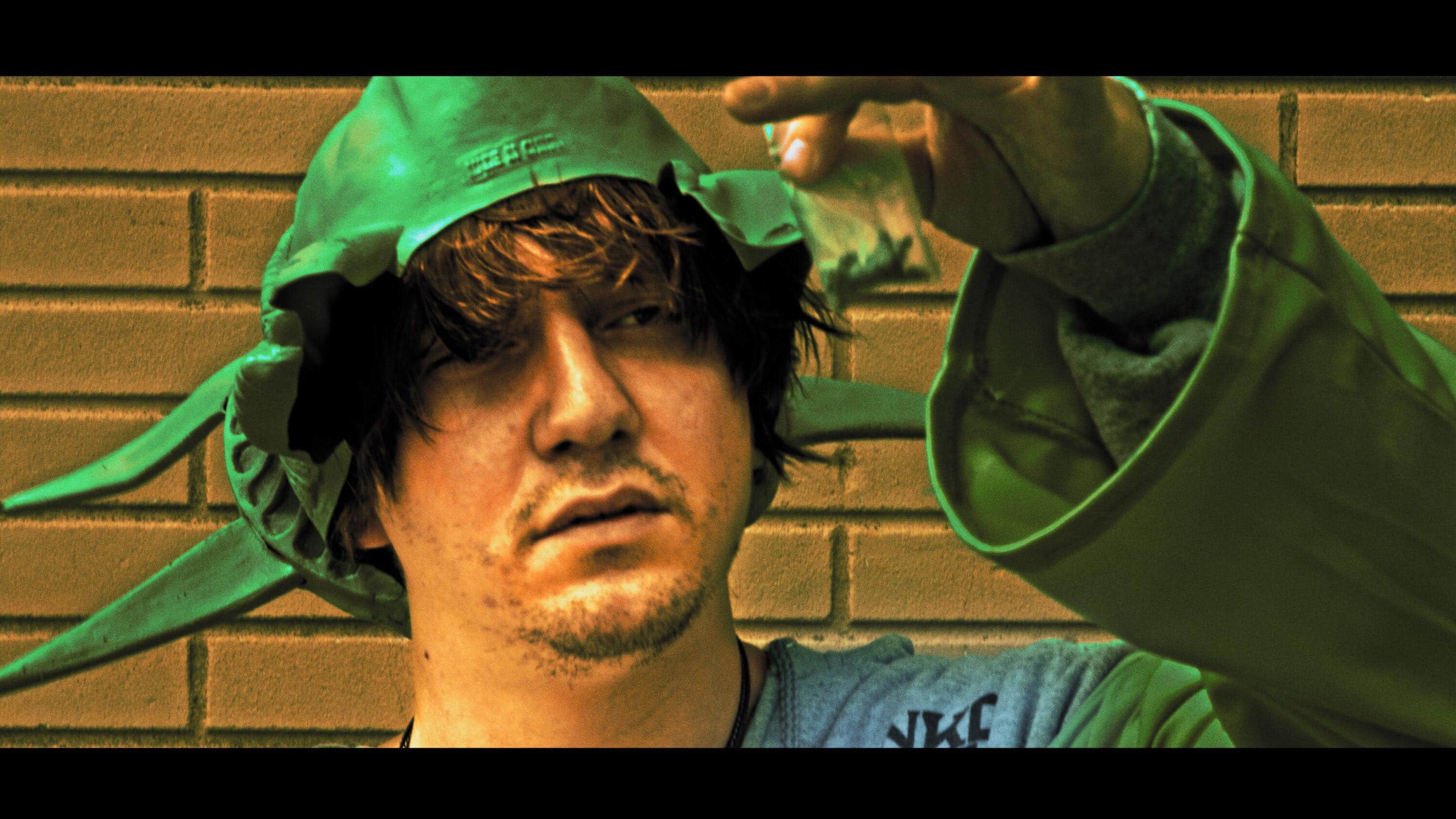
What do you enjoy and find most rewarding about your stage and your screen work?
Dan: The people; the response from friends and family and fans – there’s really nothing like it. The fans are so supportive, connecting online and sending fan art and their own personal victories. And there’s nothing like the sound of applause. I also like the stage because it’s so physical. There’s something about throwing yourself around the stage – it’s like a therapy session. It’s like TV will make you crazy, and theater will take the crazy away.
Erik: Screen work is forever (though I’ve made videos of my theatrical performances, they’re not professional quality intended for public viewing, they’re just for my archives). With the process of filming, because it’s not done in sequence, you feel like you get to experience it anew once it’s completed, and you see how your work fits into the finished product. On stage, you feel the experience immediately.
Jamyl: I love theater; it’s my home base and I feel most comfortable there. In both, I like to be off-book as soon as possible – by the first rehearsal, or at least the third – so I can feel the character. I like to have that sense of play with my cast mates and not have to worry about my lines. In TV, I do enjoy the pace, the action; it’s exciting! And it’s great to see how many people it takes on set to make a show come to life. I don’t think most viewers appreciate that the actor is just one little cog in the wheel.
Johnny: I enjoy film a lot, maybe because I haven’t done as much as theater; it’s newer and exciting. Plus in a way it’s more tangible; a film is forever, whereas theater is an experience and will go “poof!” when you’re done with the show. The reward in stage is the friends you make in the rehearsal process. Film is more of a factory-style production line. You only get to interact with the people in the scenes you’re in, even as the lead, and a lot of times you’re acting in a vacuum – the person you’re talking to might not even be there for your shot, especially if it’s a close-up. In a play, I make it a point to talk to everybody, to keep the morale going.
What’s been your most memorable experience in each?
Dan: Acting with Sarah Jessica Parker, hands down. When I was waiting on set, she sits down in the chair next to me, right there in my face – holy crap, this is where she is in the scene?! In theater, there are so many great experiences. I remember singing “You’ll Be in My Heart” in Tarzan and having to check myself because of the tears starting to come from nowhere, and it’s easy to let that go too far – to the point where you can’t sing. Another good one was in Rock of Ages. Mitch Jarvis used to do things to try to make me laugh in one of our final scenes together. It would start to grow out of control, so we’d get a talking to, but that was so much fun, having those real genuine belly laughs. The majority of my best memories in the theater are genuine moments backstage with cast mates.
Erik: In the theater, it was probably the final moments in the closing performance of More Than All the World, when Edward II and Christopher Marlowe say their goodbyes to the world. For me, it was saying goodbye to the piece and roles I created. On camera, it was the final moments in Happy Yummy Chicken. After shooting for a week, Brandon Monokian and I were sitting on a couch, improvising our recap of the story. It was the most comfortable I’ve ever felt on camera; I could have fun, and not have to worry about the time crunch!
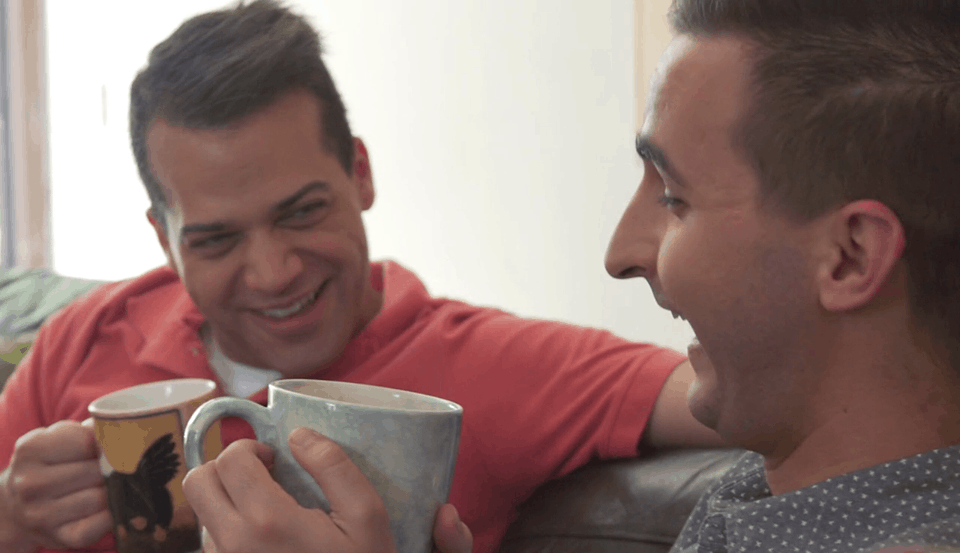
Jamyl: It’s interesting; I’ve been really, really blessed in theater, so I actually have two memorable experiences. In a piece with Bill T. Jones Dance Company, I was the only actor there. I had to learn a poem by Walt Whitman – an abstract list of body parts – by tomorrow! But it influenced the way I work, to learn as soon as I can, as I said before, so I can focus on the character and speak the same language. I also loved playing Rey-Rey in Tarell Alvin McCraney’s Wig Out! It was right after he won the Oscar, and I was so fortunate to see how he works, and what a lovely human being he is; it was such an honor to work with him. It’s been my favorite role so far, and I might not have been able to do it five years ago, but the timing was eerie and perfect; it came at exactly the right time in my life, almost like therapy. It’s so rare for a queer black actor to get to work with a queer black playwright and director, but it’s important, and it speaks to us. On screen, I enjoyed the last project I worked on, Manifest. I loved the scene and the whole experience of it. I worked with Josh Dallas, and he and the entire lead cast were so warm and welcoming. He came right up and introduced himself to me, called me by my name, and taught me how a leading man should conduct himself – not be arrogant or have a huge ego. I had the same experience with Aaron Paul on The Path – the same kind of lovely behavior.
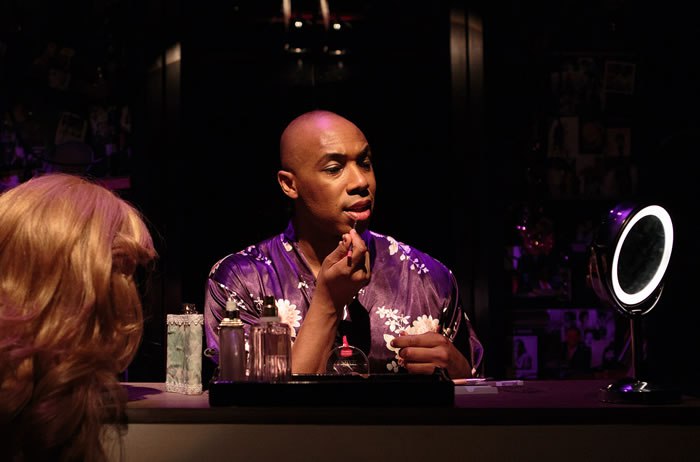
Johnny: I’ve had so many experiences in theater. The Radicalisation of Bradley Manning with Inis Nua in Philadelphia was an important piece of theater, and I’ll never forget the conversation it started. It was also memorable to me, though not in a good way, what happened to an audience member during a performance of Delirium with EgoPo. A woman apparently had a bad reaction to a new medication she was taking; she passed out in the middle of my speech, and left in an ambulance. After an hour break, we resumed the show with “As I was saying . . .” That’s a memory you never forget, and it’s also a reminder that you’re performing live and anything can happen. In film, Shithead was very, very, very memorable because of the strong bond I developed with Mike Morelli, the writer, director, and producer of the film. I hope to find it again at some point. He cast me, and during the time we worked together we became best friends, talking about our ideas and turning them into scenes. I know there will be more projects together in the future.
Where can audiences look forward to seeing you next?
Dan: My concert in January at Feinstein’s/54 Below, where I will be talking about some of these same things, in detail. There are so many stories I want to tell, I just have to be careful about the time – I can’t fit them all in! And Smokey Joe’s Cafe runs through November 4, Off-Broadway at Stage 42.
Erik: I just did a live radio play The Patient, directed by Barbara Brandt Kinter for SunDog Productions, in which I played the title character; I believe it will be archived. I’m also working on a series with a group of musical theater artists that I joined to do an as-yet-unnamed musicalized campaign in the Dungeons and Dragons universe. And I’ll be back in London in January for the remount of my musical GRINDR The Opera at Above the Stag Theatre, where it played this past July to September and was nominated for five Off West End Awards, including Best New Musical.
Jamyl: I’m in the eighth episode of NBC’s Manifest, which I believe will air sometime in November. And I’m still auditioning for this season and am up for some things that I can’t talk about quite yet!
Johnny: Shithead will be presented in some upcoming film festivals, following its success in LA, where it won for Best Comedy and Best Visual Effects in the Los Angeles Film Awards, and I was honored as Best Actor in a Comedy by the Actors Awards. We’re screening it now for entry in The Comedy World Network International Film Festival in Las Vegas in November, but I don’t have a date yet. I’ll also be coming out with a music video in late October/early November for my first single “Mouse Trap U.S.A.,” which can be downloaded on all the major streaming platforms.
Many thanks to all of you for giving our readers some insight into the different genres and an inside understanding of your work in each!




